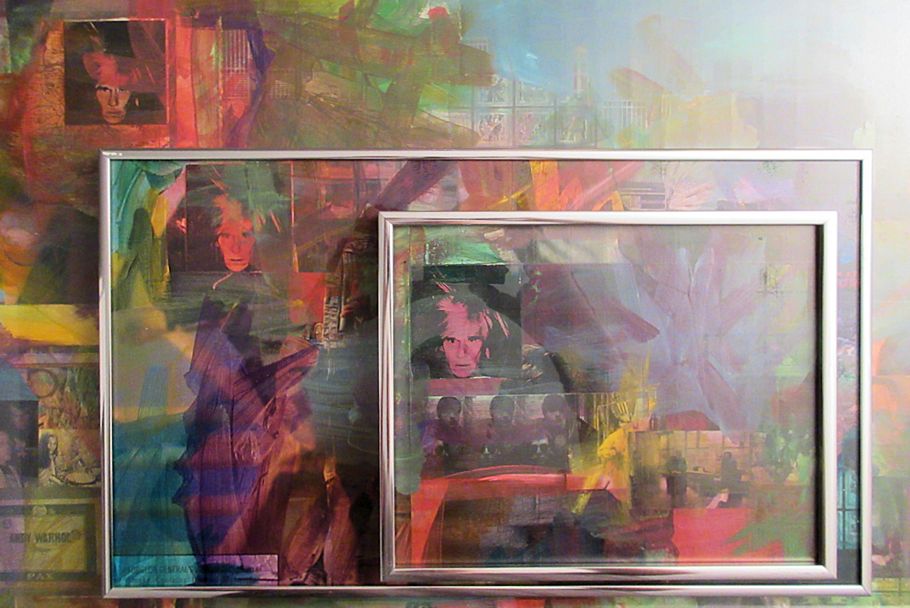
Untitled/Untitled/Untitled [Warhol in chrome frames]
2002.12.05
| |
2002.12.06 11:23
Re: game talk
A few days ago mmuttt asked me, "What's the one truly unique thing about the Large Glass?" My answer is, "the cracks in it."
2002.12.06 21:52
Re: game talk
There is a review of Henderson's "Duchamp In Context" in the January 2000 Art In America by Rhonda Roland Shearer. Shearer is a Duchamp scholar and the widow of Stephen Jay Gould, and (I guess) the director of the Art Science Research Laboratory (see "contact us" at www.toutfait. com).
2002.12.06 22:03
Re: game talk
The Large Glass cracked while in transit to Dreier's home in Connecticut.
2002.12.07 10:00
Re: game talk
Go in Museumpeace, and may Museumpeace be with you.
Are Duchamp and Stephen Jay Gould playing evolutionary or reenactionary chess right now?
And speaking [of architecture] virtually, the Homo Ludens Hall of Fame is a computer aided design. And what a "gift shop." T-shirts that say, "I'm with the metabolic aesthetic, even."
Anabolism to the left of me. Catabolism to the right. Here I am, stuck in the middle of life.
2002.12.09 11:43
Re: MIRRORING THE CULTURE
I recently saw a Life magazine from the later 1980s featuring Pee-Wee Herman on the cover and inside, and damned if what Pee-Wee (and his producers) were doing back then didn't look a whole lot like what Koons was doing at the very end of the 1990s.
I think the best way to mirror contemporary culture via art is to provide a view/reflection that presents contemporary culture in a way that contemporary culture didn't expect to see itself. Of course, this usually provokes a reaction of fright and/or denial, but that's exactly the point, isn't it?
I'll never tire of saying, "we are all mirrors that have to see ourselves regardless."
2002.12.10 12:09
Re: Sentimental Journey
..."So, could it be said that sentimentality (the derided type) would be an aspiration to or representation of another time, agenda, lifestyle, etc.?" the answer seems to be that sentimentality is never necessarily the type of aspiration you describe, however, a sentimental reenactment is very likely an "aspiration to or representation of another time, agenda, lifestyle, etc." And here the "game" of degrees of separation becomes compounded. While pondering all this I took it to an extreme and came up with the idea of "The Stretch-Mark Paintings" where it is very probably just as possible to get at the truth by really working at stretching it, which demonstrates that opposite extremes lead to different but equally effect outcomes.
Now, thinking of the position of "ersatz", it could be said that where oral history is still memory/reenactment, written history is the substitute for oral history. Written history is, and has been for several millennia now, the primary modus operandi of (maintaining) culture, therefore (contemporary) culture already works mostly within the realm of a substitution.
I am a substitute, therefore I am?
|